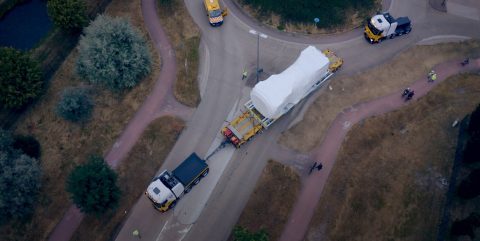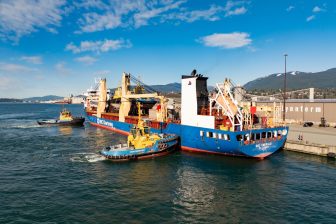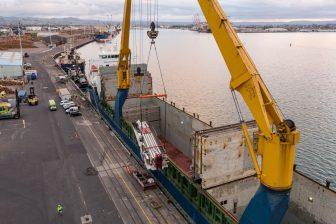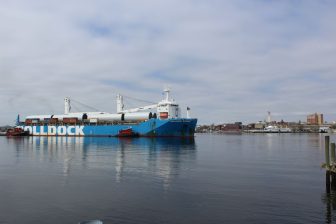
ZF turns to waterways for powertrains transport
The demand for wind energy is increasing worldwide and turbines are getting bigger and more powerful, and so are all the other components, like the powertrains. Responding to the market demand, ZF Wind Power has expanded its portfolio from serial gearbox to serial powertrain production. However, the growing size of the components did not only mean the adaptation of the manufacturing processes but also the transport solutions, which subsequently prompted the company to invest in a sustainable solution.
The company is closely cooperating with Vestas, and the V236-15.0 MW wind turbine is the new star in the lineup. ZF Wind Power’s powertrain for the unit, the first prototype, recently left Belgium via sustainable water transport.
Pushing the transport solutions to the limit
The use of the Vestas V236-15.0 MW models will help speed up the shift from harmful fuels to environmentally friendly and sustainable energy sources. The blades, measuring 115.5 metres in length, increase energy output while reducing the number of turbines needed. However, this design not only advances energy production capabilities but also challenges transportation limitations.
“Bridges, roundabouts, roadworks, and other possible obstacles on the route make it rather difficult to transport such a heavy and large powertrain via the road. After different studies with multiple experts, including De Vlaamse Waterweg (Flemish Waterways), we decided to transfer this unique design via inland waterways and international sea transport,” explains Felix Henseler, CEO of ZF Wind Power.
Transport on waterways is not only independent of roadblocks. As there are hardly any ‘traffic jams’, it is more trustworthy and delivery times are predictable in detail. “Inland waterway transport is a very reliable mode of transportation: you know exactly when your shipment will arrive. Goods are not only transported efficiently but also in an environmentally friendly manner,” says Chris Danckaerts, CEO of De Vlaamse Waterweg.
You just read one of our premium articles free of charge
Register now to keep reading premium articles.




